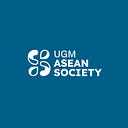The Road Ahead: Indonesia’s ASEAN Chairmanship and the Complexities of Resolving the Myanmar Crisis
Written by: Fattaa Hayyu Tri Hapsari
The Association of Southeast Asian Nations (ASEAN) is an intergovernmental organization that promotes cooperation and economic integration among its ten member countries. For the third time, Indonesia — the largest economy in Southeast Asia, has taken over the Chairmanship position of ASEAN this year. Under the grand theme of “ASEAN Matters: Epicentrum of Growth,” Indonesia has prioritized economic recovery, digital economy, and sustainability as its main goals during this year’s chairmanship (The Jakarta Post, 2022). Additionally, Indonesia aims to strengthen ASEAN’s position as a peaceful and stable region that can anchor global stability while upholding international law.
However, Indonesia’s efforts to maintain ASEAN’s relevance face many strategic obstacles, affected by the growing geopolitical tensions in many parts of the world. This is manifested by conflicts in Russia-Ukraine, the South China Sea dispute, and of course the Myanmar Military Junta. Hence, to maintain ASEAN relevance Indonesia needs to maneuver ASEAN and solidify the members to garner the necessary regional consensus to meet the geopolitical challenges and find ways to manage or resolve disputes and tackle common problems peacefully. Indonesia’s task as ASEAN chair will be to overcome the divisions within ASEAN to solidify the bloc’s role as a credible regional actor. In line with it’s Agenda, what Indonesia would do to take care of the dispute?
To realize the ASEAN centrality agenda, Indonesia must first take care of disputes and conflicts inside ASEAN member countries. One major challenge that Indonesia needs to face is the Myanmar Military Junta. Two years since Myanmar’s military overthrew the democratic government of Aung San Suu Kyi, the crisis has now transformed into a more complex issue. At first, it might’ve been just a political issue, but now the crisis has spread into the socio-economic of Myanmar’s civil society. The Junta has caused at least the death of over 1,100 civilians, the forced displacement of more than 200,000 individuals, and left approximately 3 million people in need of humanitarian aid, thus garnering this issue much attention from the international community (UN OCHA, 2021).
Indonesia recognizes the urgent need to address the crisis in Myanmar, not only to maintain stability within ASEAN but also to preserve its reputation in the global community. Progress towards de-escalating the conflict in Myanmar during its term as chair of ASEAN would undoubtedly bolster Indonesia’s success in leading the region. Thus, despite the Myanmar military regime’s failure to honor its obligations for almost two years since the peace agreement, the Myanmar crisis remains one of the top issues Indonesia aims to tackle during its chairmanship this year. This commitment was highlighted by Indonesian Foreign Minister Retno Marsudi in her February speech, where she pledged to push for the implementation of the five-point consensus for the Myanmar Crisis.
Although the UNSC already passed Resolution 2669 in December last year, this issue is far from being resolved. So, as chairman this year Indonesia is expected to make progress and finally resolve the Myanmar issue. With its degree of political clout and influence in ASEAN, Indonesia is expected to garner better progress than the previous chairs.
Indonesia’s approach to the Myanmar crisis stands in contrast to that of Cambodia, with Indonesia taking a more critical stance towards the military government. The country has been actively collaborating with other ASEAN member states to find a solution to the crisis and has been advocating for the immediate release of political prisoners, as well as the restoration of democracy in Myanmar. This commitment was demonstrated by establishing the ASEAN special envoy office for Myanmar in Jakarta, which aims to spearhead frameworks and coordinate ASEAN’s efforts in addressing the crisis. The goal is to enable national dialogue and engage with stakeholders in Myanmar, with the hope of facilitating a peaceful resolution to the conflict (Karmini, 2023).
To facilitate national dialogue in Myanmar, it is crucial for Indonesia to establish relationships with stakeholders in various contexts — bilateral, regional, and multilateral. While maintaining strong bilateral relations is crucial to preventing further humanitarian breaches, it is insufficient without the support of regional powers. However, building regional relationships alone is also not enough, as the ASEAN Way of Non-Intervention could limit the organization’s ability to take a stronger stance. Therefore, it is imperative for Indonesia to seek assistance outside the region, as evidenced by the ineffectiveness of the pressure ASEAN put on the UN Security Council through Resolution 2699 in December 2022. Indonesia should pursue diplomatic relationships with Russia and China to push for a collaborative effort to resolve the conflict, particularly the ongoing humanitarian crisis in Myanmar. This is crucial because Russia and China play essential roles in supporting the military junta by providing economic and military aid that enables the regime to perpetrate atrocities against civilians and wage war against other armed ethnic groups (Vun & Rim, 2023).
In conclusion, Indonesia’s ASEAN chairmanship in 2023 is critical due to the many challenges facing the region that could undermine its stability and relevance. Indonesia’s critical stance on the Myanmar crisis has demonstrated its commitment to upholding a rules-based international order. With its proactive initiatives and strong leadership, Indonesia has the potential to reinforce ASEAN’s position as a credible regional actor and ensure its sustained relevance in the coming years. However, it is important to note that Indonesia cannot tackle these challenges alone and that each chair should not pass the responsibility on to the next. Instead, concerted efforts are needed to address these challenges collaboratively.
References
Karmini, N. (2023). ASEAN Foreign Ministers Meet Under Shadow of Myanmar Crisis. Thediplomat.com. https://thediplomat.com/2023/02/asean-foreign-ministers-meet-under-shadow-of-myanmar-crisis/
The Jakarta Post. (2022). Indonesia’s 2023 ASEAN chairmanship has officially begun. The Jakarta Post. https://www.thejakartapost.com/adv/2022/11/18/indonesias-2023-asean-chairmanship-has-officially-begun.html
UNOCHA. (2021). Issue Brief: Dire Consequences: Addressing the Humanitarian Fallout from Myanmar’s Coup — Myanmar | ReliefWeb. Reliefweb.int. https://reliefweb.int/report/myanmar/issue-brief-dire-consequences-addressing-humanitarian-fallout-myanmar-s-coup
Vun, P., & Rim, S. (2023). What Indonesia Can Learn From Cambodia Regarding the Myanmar Crisis. Thediplomat.com. https://thediplomat.com/2023/02/what-indonesia-can-learn-from-cambodia-regarding-the-myanmar-crisis/
